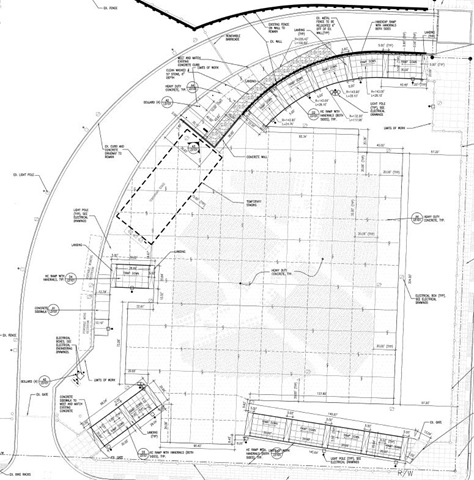Editor’s Note: Sharon Felton’s title was incorrect in the original version of this post. It has been corrected.
Starting next month, if a new property development project in Raleigh has to undergo four city reviews, the city will make sure property owners know the cause.
In January, as part of an ongoing regulatory reform effort, the city’s Planning and Development Department will roll out three changes to the development-review process. One of them is that the department will invite owners and consultants for a face-to-face meeting if a project plan is denied three times.
Planning Department Communications Administrator Sharon Felton said developers and contractors have told city planning staff Development they want to know if their engineers and architects repeatedly submit plans that don’t meet the city’s requirements.
Ted Van Dyk, an architect with New City Design Group and chair of the city’s Appearance Commission, said there are several reasons this change is useful.
“Some submittals are just substandard and need substantial coaching to get to an approvable status,” Van Dyk told the Record by email. “In other cases, the project or site plan might be exceedingly large and/or complex and face-to-face discussions might yield more benefit than rounds of email comments and attempted remedies by designers.”
Another change is that the Raleigh Fire and Urban Forestry Departments’ staff will review and sign off on Infrastructure Construction Plans. Developers will have to submit two extra sets of plans and reviews will take two days longer.
The city says the upside is that if developers have to revise aspects of the project such as hydrant placement or tree-conservation areas, the departments will spot these issues during the planning stage rather than requiring changes after a site review. Felton said this fits the city’s goal of making development-review more unitary, rather than “siloed” into separate departments.
The third announced change is that written comments on plans must reference the relevant section of the city code.
“Sometimes staff will reference the municipal code and what part [of the plan] is not meeting the code, and sometimes staff does not,” Felton said. “We’re going to make it a rule staff is required to always reference the code.”

Starting next year, city planners are changing the review process for site plans. This is an old site plan for the Raleigh amphitheater.
Felton said the most requested changes to the rules are to resolve inconsistencies between plan reviews and site inspections, and that requiring all comments to reference the code will help.
It will also help reviewers from different departments understand what their colleagues are concerned about.
“This will simply make it easier for design professionals to locate and understand the code provisions that generate comments,” Van Dyk said.
Felton said they are also looking for ways to improve the city’s software for a more unitary review process, and that planning staff want feedback on how to do this. Another request Felton’s department is working on is for the city to conduct different development-review processes, such as stormwater, mass grading and tree conservation, simultaneously rather than sequentially.
She said that’s a challenge when Raleigh’s staffing budget is so tight: The workload is manageable now, but simultaneous review would increase it substantially.
“We haven’t figured out a logical way to proceed,” she said.
Van Dyk said the larger point of these changes was that the city staff are listening to developers and property owners and looking for ways to address their concerns.
“The spirit of wanting to streamline, to work with the design and development community and address concerns is what’s important to me, rather than individual procedures,” he said. “So I think this is positive.”
